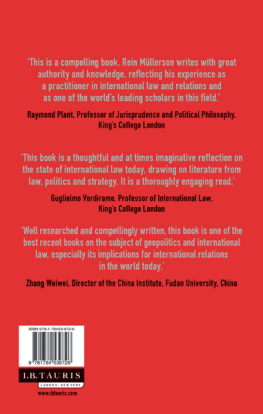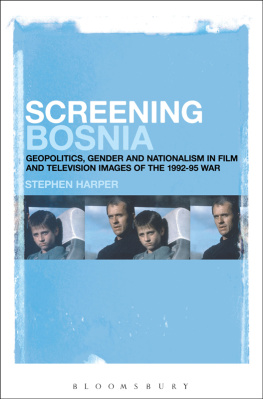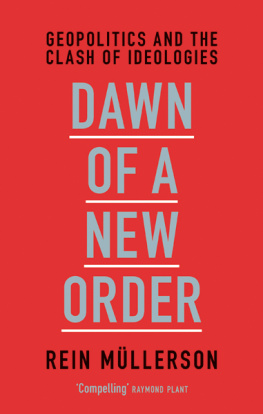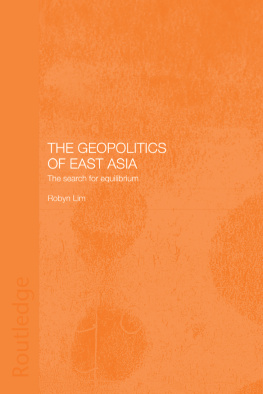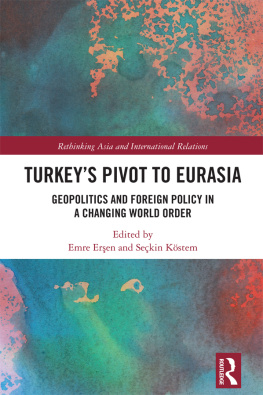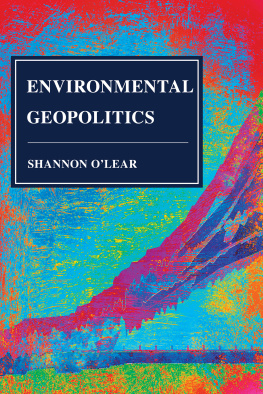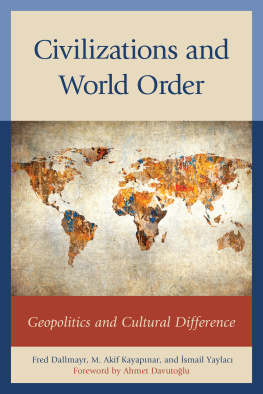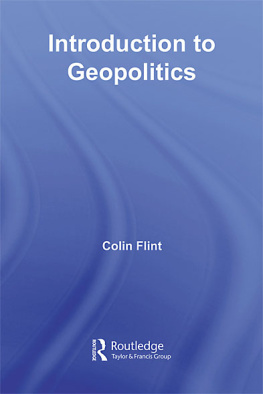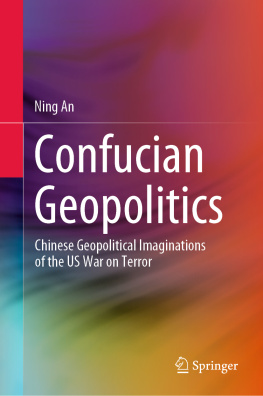Müllerson - Dawn of a New Order: Geopolitics and the Clash of Ideologies
Here you can read online Müllerson - Dawn of a New Order: Geopolitics and the Clash of Ideologies full text of the book (entire story) in english for free. Download pdf and epub, get meaning, cover and reviews about this ebook. year: 2017, publisher: I.B. Tauris, genre: Politics. Description of the work, (preface) as well as reviews are available. Best literature library LitArk.com created for fans of good reading and offers a wide selection of genres:
Romance novel
Science fiction
Adventure
Detective
Science
History
Home and family
Prose
Art
Politics
Computer
Non-fiction
Religion
Business
Children
Humor
Choose a favorite category and find really read worthwhile books. Enjoy immersion in the world of imagination, feel the emotions of the characters or learn something new for yourself, make an fascinating discovery.
Dawn of a New Order: Geopolitics and the Clash of Ideologies: summary, description and annotation
We offer to read an annotation, description, summary or preface (depends on what the author of the book "Dawn of a New Order: Geopolitics and the Clash of Ideologies" wrote himself). If you haven't found the necessary information about the book — write in the comments, we will try to find it.
Müllerson: author's other books
Who wrote Dawn of a New Order: Geopolitics and the Clash of Ideologies? Find out the surname, the name of the author of the book and a list of all author's works by series.
Dawn of a New Order: Geopolitics and the Clash of Ideologies — read online for free the complete book (whole text) full work
Below is the text of the book, divided by pages. System saving the place of the last page read, allows you to conveniently read the book "Dawn of a New Order: Geopolitics and the Clash of Ideologies" online for free, without having to search again every time where you left off. Put a bookmark, and you can go to the page where you finished reading at any time.
Font size:
Interval:
Bookmark:

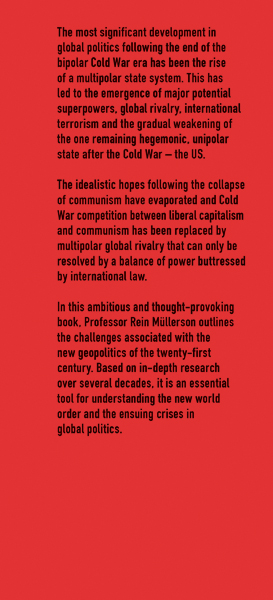
Rein Mllerson is Research Professor at the University of Tallinn. He was formerly Professor of International Law at Kings College London, UN Regional Advisor for Central Asia and Visiting Centennial Professor at the London School of Economics and Political Science (LSE). He is the author of 12 books on international law and politics.
This is a compelling book. Rein Mllerson writes with great authority and knowledge, reflecting his experience as a practitioner in international law and relations and as one of the worlds leading scholars in this field.
Lord Raymond Plant,
Professor of Jurisprudence and Political Philosophy,
Kings College London
This book is a thoughtful and at times imaginative reflection on the state of international law today, drawing on literature from law, politics and strategy. It is a thoroughly engaging read.
Guglielmo Verdirame, Professor of International Law,
Kings College London
Well researched and compellingly written, this book is one of the best recent works on the subject of geopolitics and international law, especially its implications for international relations in the world today. Rein Mllerson has rightly questioned many assumptions taken for granted for so long in the West on such vital issues as democracy, regime change and humanitarian interventions, and it should be a must-read for all those who are interested in a more sophisticated understanding of the world today and in seeking a more just world order.
Zhang Weiwei, Director of the China Institute,
Fudan University, China

Published in 2017 by
I.B.Tauris & Co. Ltd
London New York
www.ibtauris.com
Copyright 2017 Rein Mllerson
The right of Rein Mllerson to be identified as the author of this work has
been asserted by the author in accordance with the Copyright, Designs and
Patents Act 1988.
All rights reserved. Except for brief quotations in a review, this book, or any
part thereof, may not be reproduced, stored in or introduced into a retrieval
system, or transmitted, in any form or by any means, electronic, mechanical,
photocopying, recording or otherwise, without the prior written permission
of the publisher.
References to websites were correct at the time of writing.
ISBN: 978 1 78453 972 6
eISBN: 978 1 78672 225 6
ePDF: 978 1 78673 225 5
A full CIP record for this book is available from the British Library
A full CIP record is available from the Library of Congress
Library of Congress Catalog Card Number: available
Typeset by Riverside Publishing Solutions, Salisbury, SP4 6NQ
Printed and bound by CPI Group (UK) Ltd, Croydon, CR0 4YY
To George Mllerson, with love and gratitude for his contribution.
Acknowledgements
I warmly thank I.B.Tauris and particularly Lester Crook, Jo Godfrey and Sara Magness for their efforts and enthusiasm in helping me to the completion of the manuscript.
Parts of this book are based on the following previously published articles:
Rein Mllerson, Ideology, Geopolitics and International Law, Chinese Journal of International Law (2016) 15 (1): 4773.
Rein Mllerson, Democratization: Supply-Stimulated or Demand-Induced?, in Isabelle Buffard et al. (eds), International Law between Universalism and Fragmentation: Festschrift in Honour of Gerhard Hafner (Leiden: Martinus Nijhoff Publishers, 2008).
Introduction
The high some would say nave expectation that many, including myself, had after the end of the Cold War has not materialised: the expectation of a world in which law, impartially interpreted and applied, would have primacy over politics. Instead, differing visions of desirable and possible world orders are today accompanied by propaganda warfare, where even international law is used as a tool of hegemonic dominance or, on the contrary, as an instrument to counter such dominance. In place of the Cold War rivalry between the belief in liberal capitalism and communist creeds, today the main competition is between ideologies justifying the continuation and expansion of a unipolar (or non-polar) world with one centre of power, a world that is also becoming more and more homogeneous (liberaldemocratic), and a multipolar balance-of-power world where diverse political, economic and ideological systems cooperate and compete. This book argues that, taking into account the very size, and even more so the cultural and developmental diversities, as well as the complexity and increasing reflexivity of the world, the only realistic international system is a multipolar one. Moreover, international law, as a normative system based on a balance of interests and compromises and not necessarily on shared ideology or values (this may underpin domestic legal systems or EU law), can function relatively well only in a multipolar, balance-of-power, international system, which is consciously and conscientiously built and accepted as legitimate. And though the processes of globalisation have a tendency to homogenise the world while making many, if not most, states more heterogeneous, attempts to accelerate these processes are bound to be counter-productive.
The course of history is constantly accelerating in geometrical progression. Changes that, millennia ago, took centuries to bear fruit, today happen within decades. Only 30 years ago we lived in a stable bipolar world; a quarter of a century back the world entered into a unipolar moment where one indispensable nation seemed to order anarchy in international relations. Today, elements of multipolarity are becoming more and more visible, and this multipolarity has so far had more conflictual than co-operational aspects. Such a situation is due, at least to an extent, to the fact that the shoots of the emerging multipolarity are not recognised by those whose interests lie in the existence and prolongation of the unipolar moment and turning it into a unipolar century, while the advocates of multipolarity, instead of practising bandwagoning, have started counter-balancing. This is only a slightly modified and moderated version of the deterministic, unilineal and unidirectional Hegelian, Marxian, Fukuyamian end-of-history argument. Such end-of-history philosophy is used to justify the expansion of liberal democracy all over the world as well as the efforts to perpetuate unipolarity and to make those who are against it seen as being on the wrong side of history.
There is no (not yet, at least) clash of civilisations predicted by Samuel Huntington (though there are certainly visible elements of it), but there is an increasing competition between differing visions of desirable and possible world orders. This is one of the, if not the, main obstacles on the path to finding solutions to a series of conflictual situations. Some of the current conflicts or potentially conflictual situations (the 2008 war between Georgia and Russia, the tragedy of Ukraine, as well as tensions in the South China Sea) are direct results of states acting in accordance with their clashing visions of the world, while many others have been exacerbated, and finding solutions to them has been delayed or hampered, since the existing or emerging centres of power consider them secondary in comparison with what, in their view, are their main interests or threats. They are striving either to consolidate the existing balance (imbalance) of power or to change it in their favour. Although the current turmoils in, for example, the Middle East and northern Africa have many variables, both local and regional, the prevalence of conflictual elements in great-power relations (especially USRussia relations) and limited coordination (with some exceptions, like the 5+1 cooperation on the Iranian nuclear programme) between them have exacerbated the Middle Eastern situation instead of helping de-escalate the conflicts (e.g., Libya, Syria, Yemen, Iraq).
Next pageFont size:
Interval:
Bookmark:
Similar books «Dawn of a New Order: Geopolitics and the Clash of Ideologies»
Look at similar books to Dawn of a New Order: Geopolitics and the Clash of Ideologies. We have selected literature similar in name and meaning in the hope of providing readers with more options to find new, interesting, not yet read works.
Discussion, reviews of the book Dawn of a New Order: Geopolitics and the Clash of Ideologies and just readers' own opinions. Leave your comments, write what you think about the work, its meaning or the main characters. Specify what exactly you liked and what you didn't like, and why you think so.

